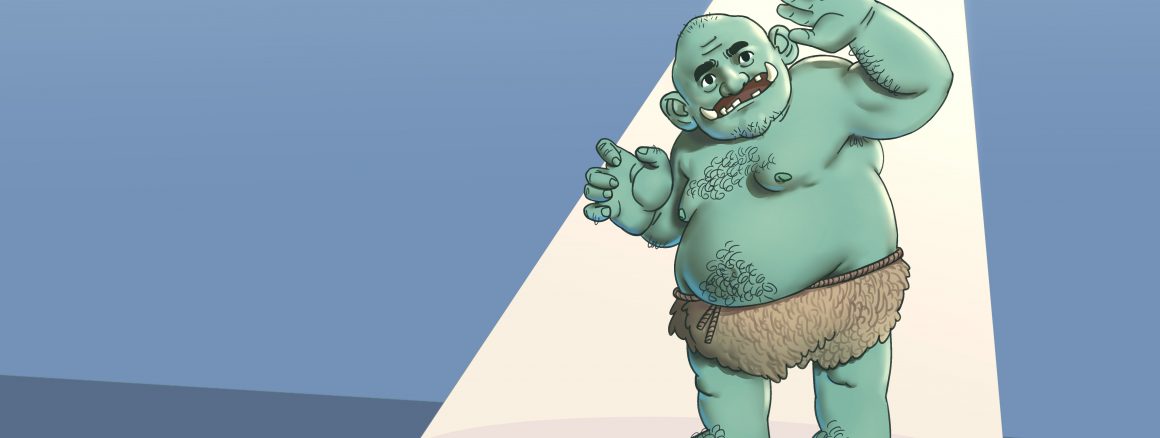BALKAN TROLL OF THE MONTH: Tahir Batatini, Kosovo Football Coach
May 4, 2021
The Balkan Troll of the Month is an individual, a group of individuals or a media outlet that spreads hate on the internet based on gender, ethnicity, religion, or other diversity categories. The Balkan Troll is selected based on hate speech incidents identified across the Western Balkans region.
Our April Troll is Kosovo football coach Tahir Batatini who showcased sexist behavior on national television in Kosovo towards female journalist Qendresa Krelani.
The incident occurred during the TV show “Sport Total“ on TV Koha Vizioni KTV. The journalist Qendresa Krelani asked Tahir Batatini, football coach of the club Lap: “Mr.Batatini, when you have results such as yours all the time, what are your aims? Batatini answered: “In journalism, you can stack newspapers, or clean something, but not analyse football in this way”. Batatini also added: “Your level is not that of a journalist, starting from your appearance”.
Despite the fact that so far there were no statements such as this one, society in Kosovo is still predominantly patriarchal. Although there are women in sport journalism are , it is still perceived mainly as a male profession. Social media comments related to this incident confirm this.
Just few days after the sexist comments by Tahir Batatini, another sexist and homophobic incident happened, involving Kosovo Imam Shefqet Krasniqi who also appeared on national television to share his views on gender role divisions and other patriarchal viewpoints.
Kosovo 2.0 and Reporting Diversity Network 2.0 article “We Are Barely Scratching the Surface of Sexism in the Media“ by Dafina Halili gave an overview of both incidents while challenging sexism in Kosovar media and the lack of reaction by media organisations more generally.
“One has to be a football expert in order to assess the words of the sports journalist, but Batatina didn’t patronize her for her lack of expertise but for her gender, just as Krasniqi does with all women,” writes Halili, and continues: “Furthermore the hegemonic masculinity of sports and religion traditionally sees women sports journalists, or any women, as unwanted newcomers in the male realm who should have stayed in the kitchen. And the media reproduces exactly that deformed reality within a patriarchal ideology. How media organizations participate in the culture of oppression is best seen through the immediate reaction — or lack of it — from journalists, editors and media owners toward the sexism by Batatina and Krasniqi. One might expect their comments to instantly backfire, but there was minimal reaction from journalists in the studio, or their superiors. “
Marking the World Press Freedom Day, Reporting Diversity Network 2.0 put the spotlight on the diverse challenges that women journalists face in the Western Balkans. The campaign shared the daily struggles and efforts of women journalists from Albania, Bosnia and Herzegovina, Kosovo, North Macedonia, Montenegro and Serbia; from not being treated equally to their male counterparts to being target of sexism comments, threats or brutal campaigns. Women who report on corruption and abuse of power or who try to promote the minority rights tend to face more challenges.
Ahead of World Press Freedom Day, the report “The Chilling: Global trends in online violence against women journalists“ was published and revealed striking findings related to online violence and hate directed towards women journalist. The report is based on a global survey of 901 journalists from 125 countries conducted in five languages; long-form interviews with 173 international journalists, editors, and experts in the fields of freedom of expression, human rights law, and digital safety and two big data case studies assessing over 2.5 million posts on Facebook and Twitter.
The research identifies some worrisome trends, reflected in the findings such as that 64% of all white women journalists surveyed said they had experienced online violence, the rates were higher for those identifying as Black (81%), Indigenous (86%), and Jewish (88%). Similar is found for lesbian and bisexual journalists, where 88% and 85%, respectively, have declared they face online abuse compared to 72% of heterosexual women.
Read the full report published by the International Center for Journalists (ICFJ) and under commission from The United Nations Educational Scientific and Cultural Organisation (UNESCO) here.
